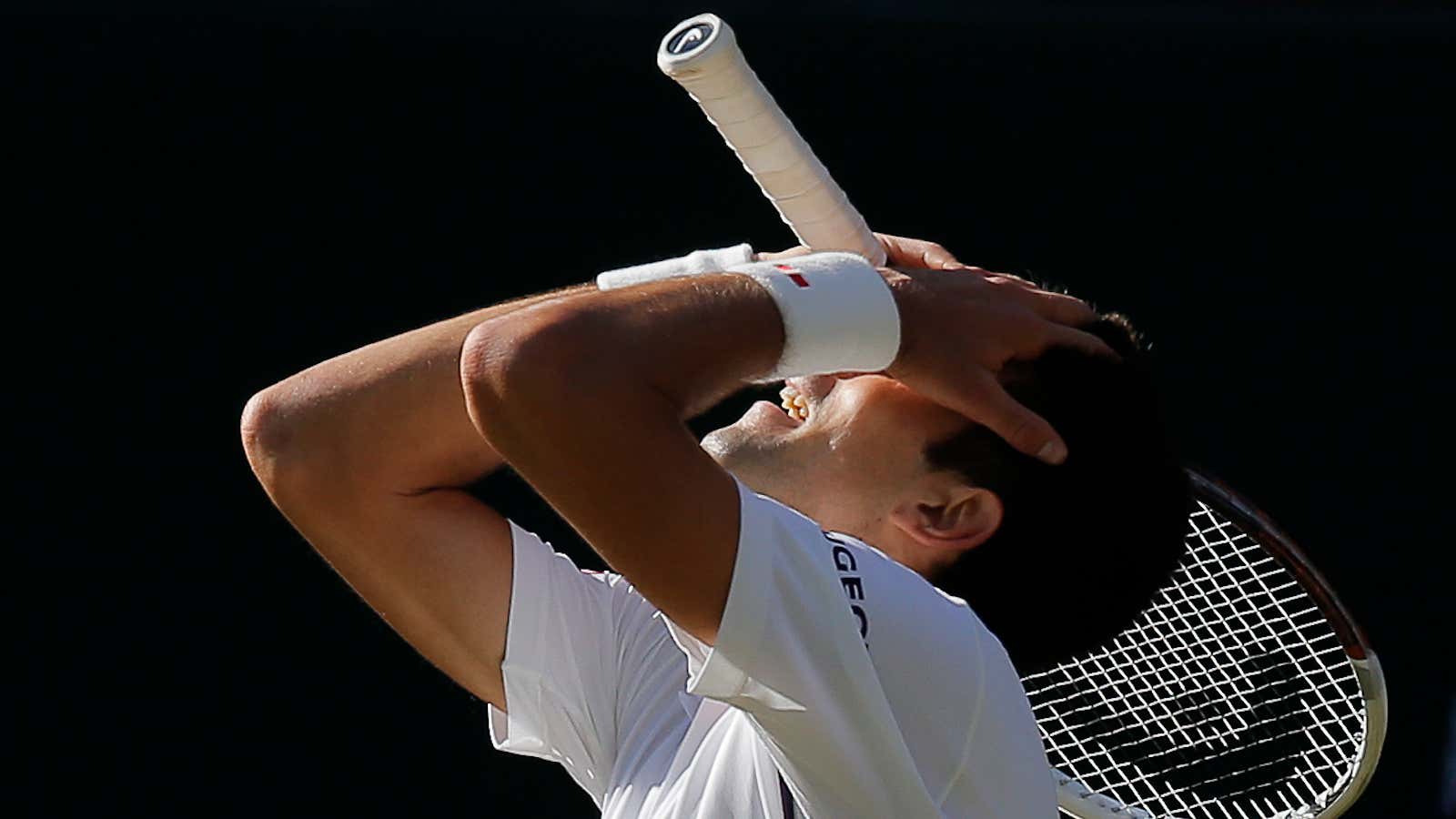Failure, as a theme, is a preoccupation of career and management culture. People love a good flop story, as long as the protagonist has since rebounded, or clearly had lots of room to experiment and fail fabulously.
But let’s be clear: “Past failures and creative mistakes” has yet to become a resume section header. When mere mortals fall short at something, they tend to reflexively dress up the story, and prop up the ego, with a few cognitive strategies, like reframing. For example, if a project didn’t get done on time, you might tell yourself it’s because the timeline was unreasonable, or the designers, or the lawyers, didn’t prioritize your dates. Or maybe you were under too much stress at home.
Psychology researchers have argued that this kind of rationalizing is a natural, healthy response—certainly superior to feeling regret about the event, which can lead a person to avoid feedback or take pains to never again encounter whatever activity proved beyond them. It’s also become popular to systematically—almost ritualistically—think about failure as a performance-enhancing exercise without dwelling on the failure itself.
But suppressing or barreling past the negative emotions aroused by your errors may be a disservice to your own professional development. Selin Malkoc, a marketing professor at Ohio State University’s Fisher College of Business, says dwelling isn’t always a waste of energy or a sign of regression. According to her research, feeling the pain of a setback is productive, under the right circumstances, for a logical reason: You’ll be motivated not to feel that pain in the future.
She draws this conclusion from an experiment that she and two other researchers recently conducted, for a study that was published in the Journal of Behavioral Decision Making. The researchers invited 98 college students to a lab and asked them to shop online for a stainless steel, five-speed blender, picking the lowest-priced model they could find. A cash prize was on the table for whoever “won” by finding the cheapest option. In reality, however, the job was impossible: No matter how savvy their web shopping skills, they were going to be informed that they missed a better deal.
Before learning of their failure, however, half of the participants were asked to focus on how they’d feel after winning or losing, and half were instructed to merely think about the experience. All of the participants then wrote about their reactions.
Later, all of these 98 “losers” were given an opportunity to perform another online search task. This time, half were asked to look for a book as a gift within a budget, and half were asked to simply look for a book that might make a nice gift. The researchers hypothesized that those who had focused on their emotions in the first task would be triggered to remember their earlier failure when looking for a budget-friendly book, since both tasks involved price consideration and an online search, and that they’d be more persistent about “winning” this time. They were right: Those subjects dedicated 25% more time to their search for a budget-appropriate book, as compared to those who had intellectualized their blender loss.
Meanwhile, the participants in the alternative gift hunt, in which money was not a factor, all showed similar levels of effort, as measured by the time put in. This suggested to the study authors that “feeling” a failure will better set you up for success the next time you have to carry out a similar task.
“Looking at the advice out there, most of the literature, and the popular press, tells you that you should either be moving on or you should be thinking about ways to learn, but no one is telling you to actually feel the emotions,” Malkoc says. But her study shows it’s better to think to yourself “I feel bad,” she says. (Malkoc has tried to follow her own advice in her personal life and reports that “it really works.”)
It’s important, though, not to allow a period of productive reflection to spiral into a drawn-out session of self-flagellation. “Rather than kick yourself, it’s important to analyze, ‘Am I on my way to coming up with self-improving tools here?’ And once you start to find those tools, that’s when you say bye-bye to the emotion,” Malkoc advises. “You say, ‘Okay, I’ve tasted it. I know what I must do to not experience that again.’”
